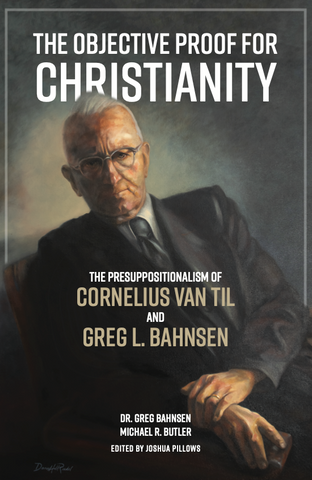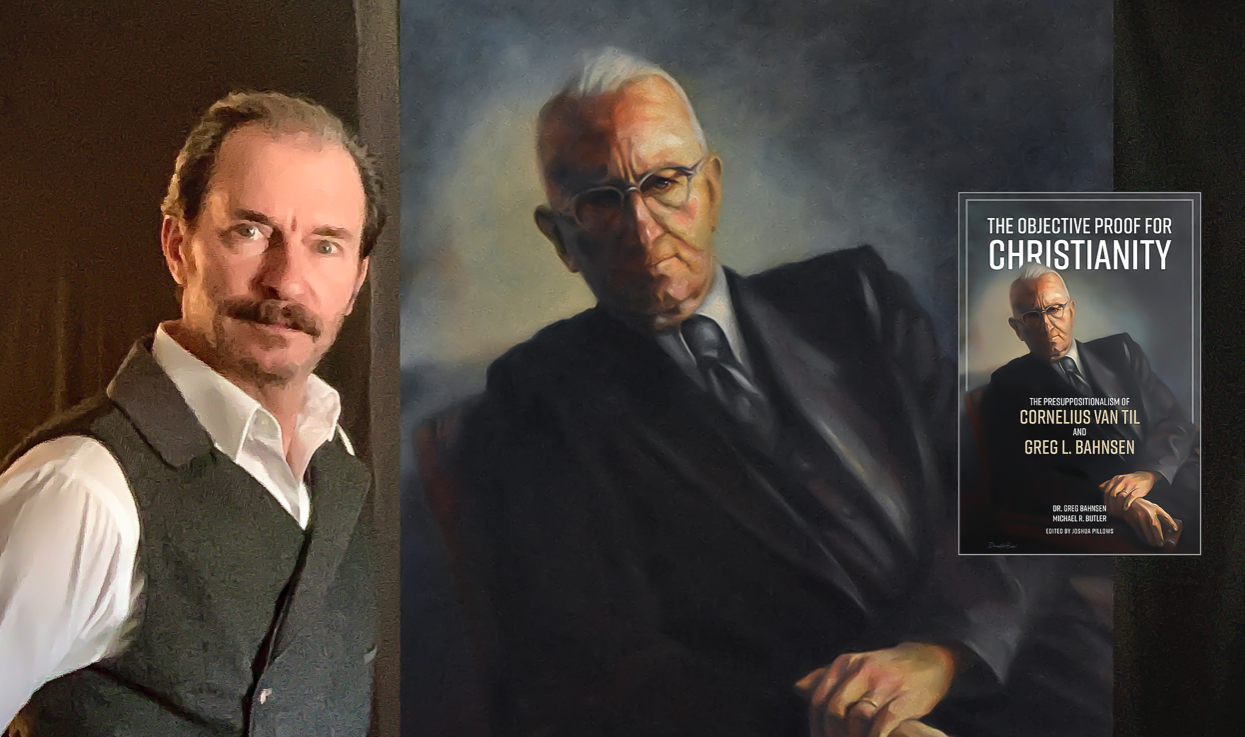Gary interviews his long-time friend, Dan Riedel, who painted the artwork for the cover of the new book, The Objective Proof for Christianity.
[T]he process of knowledge is a growth into the truth. For this reason we have spoken of the Christian theistic method as the method of implication into the truth of God. It is reasoning in a spiral fashion rather than in a linear fashion. Accordingly, we have said that we can use the old terms deduction and induction if only we remember that they must be thought of as elements in this one process of implication into the truth of God. If we begin the course of spiral reasoning at any point in the finite universe, as we must because that is the proximate starting point of all reasoning, we can call the method of implication into the truth of God a transcendental method. That is, we must seek to determine what presuppositions are necessary to any object of knowledge in order that it may be intelligible to us. It is not as though we already know some facts and laws to begin with, irrespective of the existence of God, in order then to reason from such a beginning to further conclusions. It is certainly true that if God has any significance for any object of knowledge at all, the relation of God to that object of knowledge must be taken into consideration from the outset. It is this fact that the transcendental method seeks to recognize.
The charges made against this type of reasoning we must turn upon those who made them. It will be said of this type of reasoning that it introduces the subjective element of belief in God, which all men do not share. Of this we can only say that all men should share that belief, and before the fall of man into sin man did have that belief. Belief in God is the most human attitude conceivable. It is abnormal not to believe in God. We must therefore hold that only the Christian theist has real objectivity, while the others are introducing false prejudices, or subjectivity.

The Objective Proof for Christianity
Proponents of presuppositionalism know how to pose a reductio argument against their opponent’s worldview to show its futility while also knowing how to express that Christianity can make sense of intelligibility. But exactly how many can formally state the argument? What if a more philosophically-astute opponent attacks the apologetic, specifically criticizing the nature of transcendental reasoning and its legitimacy? While the enterprise of apologetics is to be done by both the Christian philosopher and layman, the issue over transcendental reasoning must not be ignored by either class of people, despite its more philosophical nature.
Buy NowGary interviews his long-time friend, Dan Riedel, who painted the artwork for the cover of the new book, The Objective Proof for Christianity. Dan knew Cornelius Van Til well and tells a few stories about his long relationship with the man. Check out Dan’s artwork here.

